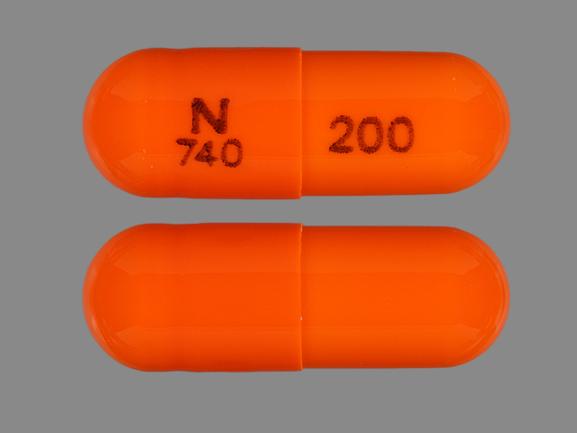Mexiletine Disease Interactions
There are 5 disease interactions with mexiletine.
Antiarrhythmics (applies to mexiletine) cardiovascular dysfunction
Major Potential Hazard, Low plausibility. Applicable conditions: Hypotension, Congestive Heart Failure
Antiarrhythmic agents can induce severe hypotension (particularly with IV administration) or induce or worsen congestive heart failure (CHF). Patients with primary cardiomyopathy or inadequately compensated CHF are at increased risk. Antiarrhythmic agents should be administered cautiously and dosage and/or frequency of administration modified in patients with hypotension or adequately compensated CHF. Alternative therapy should be considered unless these conditions are secondary to cardiac arrhythmia.
References
- Halkin H, Meffin P, Melmon KL, Rowland M "Influence of congestive heart failure on blood levels of lidocaine and its active monodeethylated metabolite." Clin Pharmacol Ther 17 (1975): 669-76
- Crouthamel WG "The effect of congestive heart failure on quinidine pharmacokinetics." Am Heart J 90 (1975): 335-9
- Ravid S, Podrid PJ, Lampert S, Lown B "Congestive heart failure induced by six of the newer antiarrhythmic drugs." J Am Coll Cardiol 14 (1989): 1326-30
- Swiryn S, Kim SS "Quinidine-induced syncope." Arch Intern Med 143 (1983): 314-6
- Gottlieb SS, Packer M "Deleterious hemodynamic effects of lidocaine in severe congestive heart failure." Am Heart J 118 (1989): 611-2
- Ochs HR, Grube E, Greenblatt DJ, Arendt R "Intravenous quinidine in congestive cardiomyopathy." Eur J Clin Pharmacol 19 (1981): 173-6
- Prescott LF, Adjepon-Yamoah KK, Talbot RG "Impaired lignocaine metabolism in patients with myocardial infarction and cardiac failure." Br Med J 1 (1976): 939-41
- "Product Information. Cordarone (amiodarone)." Wyeth-Ayerst Laboratories PROD (2002):
- "Product Information. Xylocaine (lidocaine)." Astra-Zeneca Pharmaceuticals PROD (2002):
- "Product Information. Quinidex Extentabs (quiNIDine)." Wyeth-Ayerst Laboratories PROD
- "Product Information. Quiniglute (quinidine)." Berlex, Richmond, CA.
- "Product Information. Adenocard (adenosine)." Fujisawa PROD (2001):
- "Product Information. Mexitil (mexiletine)." Boehringer-Ingelheim PROD (2001):
- Thomson P, Melmon K, Richardson J, Cohn K Steinbrunn W, Cudihee R, Rowland M "Lidocaine pharmacokinetics in advanced heart failure, liver disease, and renal failure in humans." Ann Intern Med 78 (1973): 499-508
- Singh SN, Fletcher RD, Fisher SG, et al. "Amiodarone in patients with congestive heart failure and asymptomatic ventricular arrhythmia." N Engl J Med 333 (1995): 77-82
- "Product Information. Cordarone (amiodarone)." Apothecon Inc (2022):
- "Product Information. Corvert (ibutilide)." Pharmacia and Upjohn PROD (2001):
Mexiletine (applies to mexiletine) sinus (applies to mexiletine) AV node dysfunction
Major Potential Hazard, High plausibility. Applicable conditions: Heart Block
The use of mexiletine is contraindicated in patients with cardiogenic shock, second- or third-degree AV block in the absence of a functional artificial pacemaker.
References
- "Product Information. Mexitil (mexiletine)." Boehringer-Ingelheim PROD (2001):
Mexiletine (applies to mexiletine) liver disease
Moderate Potential Hazard, High plausibility.
Mexiletine is extensively metabolized by the liver to minimally active and inactive forms. The serum concentration of mexiletine is increased and the half-life prolonged in patients with liver impairment. Elevation of liver enzymes have been reported during the first few weeks of therapy, primarily in patients with congestive heart failure (CHF) or ischemia. Hepatic necrosis, resulting in death, has occurred. Therapy with mexiletine should be administered cautiously in patients with compromised liver function, CHF or ischemia. Clinical monitoring of cardiac function (ECG) and liver function is recommended.
References
- Pentikainen PJ, Hietakorpi S, Halinen MO, Lampinen LM "Cirrhosis of the liver markedly impairs the elimination of mexiletine." Eur J Clin Pharmacol 30 (1986): 83-8
- Nitsch J, Steinbeck G, Luderitz B "Increase of mexiletine plasma levels due to delayed hepatic metabolism in patients with chronic liver disease." Eur Heart J 4 (1983): 810-4
- "Product Information. Mexitil (mexiletine)." Boehringer-Ingelheim PROD (2001):
Mexiletine (applies to mexiletine) renal dysfunction
Moderate Potential Hazard, Moderate plausibility.
Mexiletine is primarily eliminated by the kidney. Approximately 10% of mexiletine is excreted in the urine unchanged. Marked changes in urinary pH alter the rate of mexiletine excretion. Elimination is accelerated with an acidic urinary pH and slowed with an alkaline urinary pH. Therapy with mexiletine should be administered cautiously in patients with significant renal impairment. Clinical monitoring of cardiac function (ECG) and renal function is recommended.
References
- Wang T, Wuellner D, Woosley RL, Stone WJ "Pharmacokinetics and nondialyzability of mexiletine in renal failure." Clin Pharmacol Ther 37 (1985): 649-53
- El Allaf D, Henrard L, Crochelet L, Delapierre D, Carlier J, Dresse A "Pharmacokinetics of mexiletine in renal insufficiency." Br J Clin Pharmacol 14 (1982): 431-5
- Guay DR, Meatherall RC, Ferguson I, Smith H, Light B "Mexiletine clearance during peritoneal dialysis ." Br J Clin Pharmacol 19 (1985): 857-8
- Jones TE, Reece PA, Fisher GC "Mexiletine removal by peritoneal dialysis." Eur J Clin Pharmacol 25 (1983): 839-40
- "Product Information. Mexitil (mexiletine)." Boehringer-Ingelheim PROD (2001):
Mexiletine (applies to mexiletine) seizures
Moderate Potential Hazard, Low plausibility.
Seizures have been reported rarely during mexiletine therapy in patients with and without a history of seizures. Therapy with mexiletine should be administered cautiously in patients with or predisposition to seizure disorders.
References
- "Product Information. Mexitil (mexiletine)." Boehringer-Ingelheim PROD (2001):
Mexiletine drug interactions
There are 146 drug interactions with mexiletine.
More about mexiletine
- mexiletine consumer information
- Check interactions
- Compare alternatives
- Pricing & coupons
- Reviews (12)
- Drug images
- Side effects
- Dosage information
- During pregnancy
- Drug class: group I antiarrhythmics
- Breastfeeding
- En español
Related treatment guides
Drug Interaction Classification
| Highly clinically significant. Avoid combinations; the risk of the interaction outweighs the benefit. | |
| Moderately clinically significant. Usually avoid combinations; use it only under special circumstances. | |
| Minimally clinically significant. Minimize risk; assess risk and consider an alternative drug, take steps to circumvent the interaction risk and/or institute a monitoring plan. | |
| No interaction information available. |
Further information
Always consult your healthcare provider to ensure the information displayed on this page applies to your personal circumstances.


